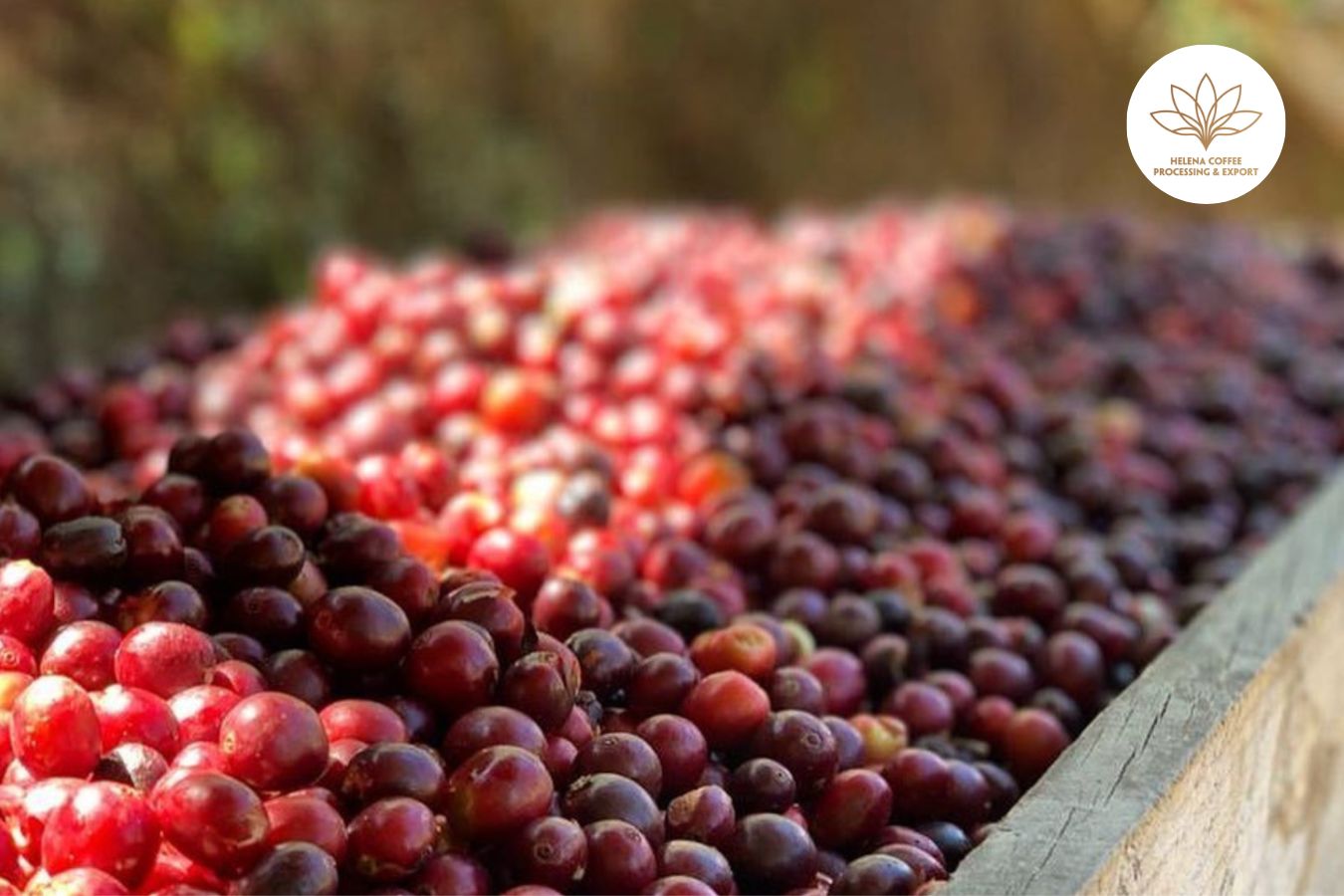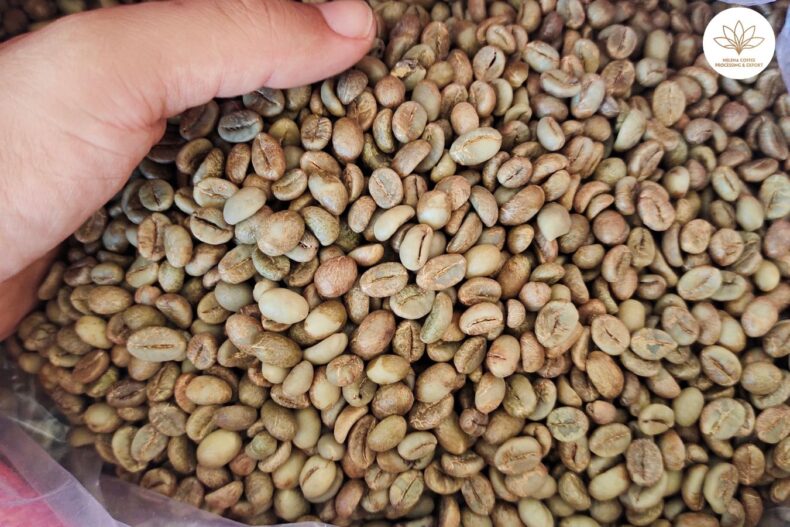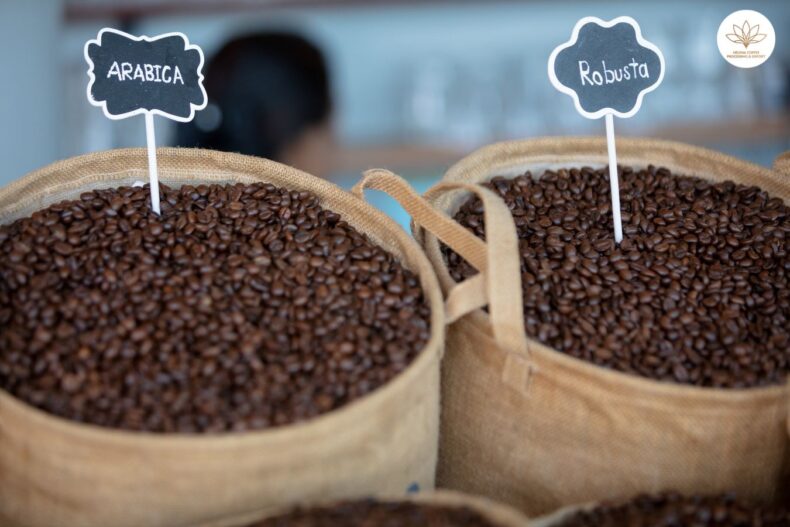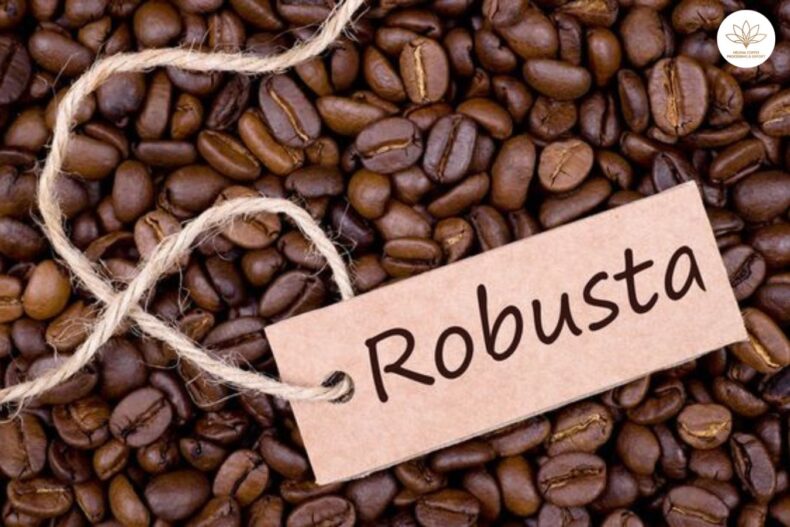
Robusta coffee is better than you think: Robusta coffee accounts for around 40% of the world’s coffee output. It grows quicker than Arabica and can survive more harsh weather, but in production and processing, it isn’t always as kind as to its “brother.
Many specialty coffee drinkers dislike Robusta due to its lousy flavor. But if Robusta is grown and processed with a focus on quality, can it meet the standards of taste quality? This article focuses on arguing &analyzing Robusta’s ability to achieve high quality. Let’s learn robusta coffee is better than you think with Helena!
Although there are more than 120 known species in the genus Coffea, only two species, Arabica and Robusta, account for more than 99% of global production. Robusta accounts for about 30 to 40 percent of the total output and is considered lower quality than Arabica.
Even though little research discusses its origin and history, Robusta’s genetic diversity is immense. This means there is a knackered world of Robusta varieties out there, with many unknown potentials.
Canephora (including Robusta & Conilon) currently accounts for between 30% and 40% of global coffee production. Vietnam is the world’s largest producer of Robusta; Domestic production reached about 30.2 million bags of 60kg in the 2019/20 crop.
Robusta & Arabica flavors
Robusta and Arabica are fundamentally different. So you shouldn’t expect a drink from Robusta to taste Arabica. Instead, allow high-quality Robusta to express its personality and story.
Arabica is often more complex than Robusta regarding taste and smell. This is partly due to two different species in the results of traditionalists.” Arabica contains lesser quantities of caffeine, amino acids, and chlorogenic acids than Robusta, but 60 percent greater total oil content,” writers Andrea Illy and Rinantonio Viani write in Espresso Coffee: The Science of Quality (15-17 percent for Robusta and 10-11.5 percent for Arabica).
Many volatile aroma compounds are dissolved in oil droplets and released during extraction so that the oil portion may explain some of the differences in cup quality between Arabica and Robusta, especially in espresso.”
On the other hand, Robusta has been criticized for having negative flavors associated with its high caffeine and chlorogenic acid content (which makes this plant much stronger (English: robust)than in nature.
Specialty coffee roasters and most discerning customers in the third wave dismissed it. Robusta is only present in a low-end market and is often blended or produced instant coffee. The quality of coffee comes from the chemical composition of coffee beans and a wide range of human options.
The specialty Arabica coffee we drink today is not only a gift of nature but also a result of a centuries-long selection process that has emphasized quality-related factors. And then, in the entire process of producing, processing, roasting, and brewing coffee, we all create methods to improve the sensory quality of Arabica coffee.
In other words, Arabica coffee is invested more time and resources than Robusta throughout the entire supply chain. The whole production process has directly affected the quality of the final coffee.

Robusta is often overlooked because of its poor quality in the past. Robusta seeds are frequently exchanged with flaws, and flavor quality is commonly overlooked. But what if it’s done correctly?
Not only may it have a significant influence, but it can also have a negative impact. But if we don’t have market demand for fine Robusta, then farmers have little incentive to improve quality at the production level.
Some organizations are trying to change how Robusta is viewed and market development for the fine Robusta. The Coffee Quality Institute (CQI) established the Robusta Q Program in 2010 to establish a common language of quality for premium Robusta coffee.
In 2021, CQI launched fine Robusta Standards and Protocols World of Coffee. Dr. Mario Fernandez, CQI’s Technical Director, said: “Robusta has several properties that make it more attractive to Arabica to some farmers, roasters, and consumers.
Many people in the specialty coffee industry do not understand or misunderstand when comparing Arabica and Robusta in quality. They are two species of the same genus, like donkeys and horses.
We often use the word “specialty” to refer to high-quality Arabica coffee, but there is a language of its own used for high-quality Robusra. We don’t call it Specialty Robusta or “Specialty Robusta,” instead we call it “Fine Robusta” or “Premium Robusta.”
Think again about Robusta.
If Robusta is focused like the Arabica plant, it is likely for higher quality, and the species is more respected. On the other hand, farmers have little motivation to increase the rate at the production level if there is no market demand for good Robusta.
Some organizations are attempting to change how Robusta is viewed and the development of the fine Robusta market. The Robusta Q Program was created by the Coffee Quality Institute (CQI) in 2010 to provide a standard language of quality for premium Robusta coffee.
CQI launched fine Robusta Standards and Protocols World of Coffee in 2021. “Robusta has several properties that make it more appealing to some farmers, roasters, and consumers than Arabica,” said Dr. Mario Fernandez, CQI’s Technical Director.
When comparing Arabica and Robusta in terms of quality, many people in the specialty coffee sector are confused. Many people in the specialty coffee industry do not understand or misunderstand when comparing Arabica and Robusta in quality.
Both donkeys and horses are valuable resources for humans, but each species has different names and serves other purposes. There is soil suitable for Arabica, and there is soil suitable for Robusta.” These standards and protocols have now been published in digital
Even the best robusta is said to not show the complexity with the sensory taste that we associate with Arabica. But again, the majority of Arabica numbers do not represent the complexity with the typical flavor that we associate with the best Arabica species.
The importance of choosing a plant that is suitable for land conditions is an increasingly urgent issue as the coffee industry more clearly recognizes the impact of climate change. As demand rises and the amount of ground appropriate for Arabica growing decreases, the industry must find new ways to meet it.
“Without significant efforts to adapt coffee production to climate change, worldwide production by 2050 may be substantially lower than it is today,” according to the Coffee Barometer 2018.

As the name implies, Robusta is stronger than Arabica with its shared nature. It is easier to cultivate and less expensive to grow. Farmers can grow it at a lower altitude than Arabica, and it is less susceptible to pests due to its higher caffeine content (as a natural insecticide).
Robusta is also better resistant to unpredictable weather conditions and warm temperatures – a reasonably clear argument in times of climate change and the arabica growing area decreases.
Robusta also produces fruit much faster than Arabica, which takes several years to mature and yields per tree. Of course, one disadvantage is the lower price than Arabica (Franziska Bridge, Purchasing Manager GEPA).
On the other hand, low prices are a strong argument against the growth of high-quality Robusta coffee and its place in the specialty coffee industry. Robusta has been grown by millions of farmers worldwide, and improving the quality of these coffees can lead to higher prices and better incomes for producers.
If the specialty coffee industry’s mission is to put the producer first, as many members assert, investing in Robusta to improve its quality and enhance its reputation must be a top priority for an ethically oriented industry.
Market Demand & Industry Expectations
Openness in the industry is critical to creating opportunities for premium robusta to become a solution. This will help coffee farmers achieve higher &more sustainable profits while supporting customers to find new taste experiences.
Imagine a Robusta grower using all the best techniques, following all the rules in best agricultural practice, investing the meager amount of money he has. Then a specialty coffee roaster will say, “Well, thank you, It’s great, but it’s still Robusta, and we’re just working with special beans, which is Arabica.” Stephan Katongole, a robusta coffee farmer in central Uganda, said:
This has gotten to the point that even regional exporters reject Robusta, claiming that “the industry only produces Arabica coffee.” You can’t blame the producer for not investing in his crops because his coffee will never become a specialty, earning him more money.
On the other hand, promoting premium Robusta doesn’t mean putting extra pressure on Arabica manufacturers — it means giving consumers the ability to taste an entirely new and differentiated product. We should work for the quality and variety of coffee.
We need to think about all those who don’t have access to their current specialty coffee instead of worrying about the cake being cut into smaller pieces. Make a giant cake.
Coffee farmers account for 40% of the coffee market, and the majority of these do not have access to the specialty coffee market even if their products are of the highest quality.


